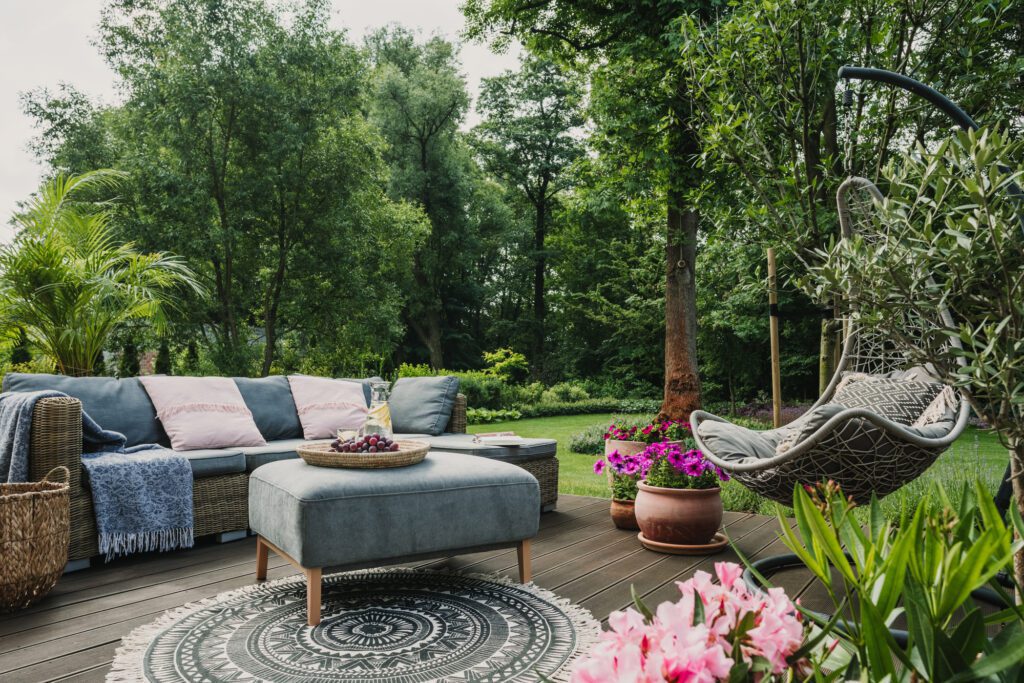*This is a collaborative post
For most homeowners, having a beautiful garden is something to be proud of. This is because they’ve spent a lot of money and time creating and maintaining the gorgeous space. If you take pride in your garden and like to put in extra effort to make sure it looks great, you may be disheartened to learn that there may be some hidden problems lurking in the garden.
The hidden problems that you may find in your garden could be quite severe and may affect the soil and plants, and could eventually ruin the aesthetic appearance. If you notice any irregularities in your garden, you may be dealing with one or a few of the following problems.
Snail Infestation
If you see some plants lacking the buds that are supposed to grow, this can be very heartbreaking to avid gardeners. You may wonder what on earth has caused the bud to fall off. Many people don’t realise that the snails they see around their plants are chewing on the stems of the buds during the night. Snails only eat a certain part of the plant and then leave the rest of the bud to fall off or go rotten.
Some species of snails love certain buds like orchids or other herbaceous or soft plants. If you’d rather not use any chemicals or pesticides in your garden, consider removing the snails manually. This may take some time, depending on the number of snails that you have in the garden.
Weeds
Weeds are one of the most common problems that you can come across in the garden. Similar to other garden plants, weeds thrive in the summer weather. They can pop up all over the place, from the lawn to the flower beds.
If you want to prevent weeds from becoming an issue around your plants, apply a deep layer of mulch during the spring months to prevent them from being able to grow properly. If weeds do sprout, eliminate them quickly by pulling them out, spraying them with herbicide, or scalding them.
Japanese Knotweed
Japanese knotweed is a type of plant that is dormant in the winter, but in the summer, it can grow extremely quickly and completely take over your garden. It’s not uncommon for Japanese knotweed to grow around a foot each week during the summer months. With this fast growth, it can quickly cover your garden and will suffocate any other flowers in its path. It can also grow more than around seven feet in height.
If left untreated, these plants can cause problems if you plan to sell your home. Some lenders won’t even give mortgages for homes where Japanese knotweed is present. The roots of the plant can also cause severe damage to your walls, drainage system, and the foundations of your property.
Removing Japanese knotweed can be very tricky and will usually require professional service. It must be disposed of at a licensed landfill site as the Environmental Protection Act 1990 classifies this plant as ‘controlled waste’.
Unhealthy Soil
If you notice that some of the plants in your garden look a little unhealthy or stunted, this may be due to unhealthy soil. There may be insufficient nutrients in the soil, making it difficult for the plants to grow properly. You may be able to improve the quality of the soil by using fertiliser. This should help to make the plants grow much healthier. Organic fertiliser is usually the best option as this doesn’t contain any chemicals that may harm the plants, your pets, your children, or the environment.
It’s also very important to ensure there is enough water in the soil for your plants. Dehydration of the plants can lead to stunted growth. Try to invest in a good irrigation system to make sure your plants will get enough water so that they can flourish.
PH Problems
The PH level of your soil will affect the growth of your plants and the animals in your garden. If you live somewhere near the coast, there’s a good chance that the soil in your garden may be acidic. It’s best to allow a professional to come in and test the soil for its acidity levels to see if it is appropriate for plants.
You could also invest in a DIY soil test kit to help you determine which minerals are present within the soil. This will also show you which nutrients the soil is lacking. With this knowledge, you’ll be able to take the right course of action with your gardening.
Small Pests
Small pests such as fruit flies, ants, and other destructive insects can damage your plants. Leaves with holes and dark patches on them can look very unsightly. With this in mind, it’s important to do something before the pesky tiny pests destroy your landscape.
One of the best ways to get rid of these small pests is with a pesticide. Some pesticides contain chemicals that may harm your plants. It’s best to choose an organic product to keep your plants and the rest of your garden in the best shape.
Final Thoughts
Your garden is usually among many things that bring you joy in everyday life. This is why it’s important to keep your garden healthy. With the help of this guide, you should be able to identify any problems that may be lurking in your garden and learn some tips on how to eradicate them. This will allow you to keep your garden looking beautiful for years on end.

